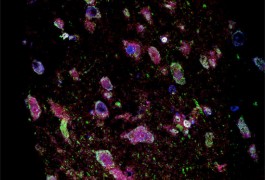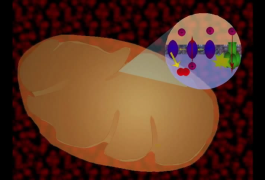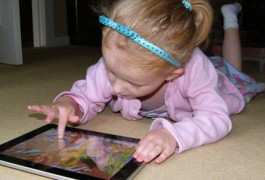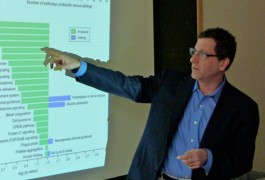Whiz kids
For many years, autism was considered synonymous with intellectual disability. A new study shows that perception is inaccurate.
From funding decisions to scientific fraud, a wide range of societal factors shape autism research.

A gene that regulates the conversion of testosterone to estrogen in the brain could help explain why males are more susceptible to autism than are females, according to a study published in PLoS One in February.

The first study to look at mitochondria — the powerhouses of the cell — in postmortem brain tissue taken from children with autism has found significant abnormalities in their function in some regions of the brain.
Researchers have extracted and sequenced DNA from 52 postmortem brains from the Autism Tissue Program, providing a resource to study mutations and gene expression differences in the brains of people with the disorder.

Integrating music into interventions helps children who have autism with their social skills, language and behavior. But methods should be standardized and tested for effectiveness at home, according to a meta-analysis published in January in the Journal of Autism and Developmental Disorders.

The first international meeting on Phelan-McDermid syndrome brought together researchers and family members of those affected by the disorder, sparking collaboration and some emotion.

The Interagency Autism Coordinating Committee has released an updated list of priorities for government-funded autism research.

A new technique documents real-time action in neurons by harnessing the changes in light that take place when they fire.

Matthew State is both a dedicated clinician and a world-class geneticist, but his diplomatic style is a relic of his former adventures in politics.